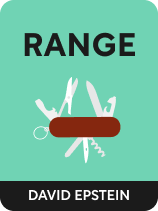

This article is an excerpt from the Shortform book guide to "Range" by David J. Epstein. Shortform has the world's best summaries and analyses of books you should be reading.
Like this article? Sign up for a free trial here .
What are some of the disadvantages of job specialization? How does being an expert in one area narrow your perspective?
David Epstein, the author of Range, says that one of the big downfalls of being a specialist in anything is that it can narrow your perspective. He says that the more details you know about something, the more confident you’ll be in your opinion of that matter, even if your opinion is extreme. This overconfidence can lead to a number of issues.
Here is what Epstein has to say about job specialization.
Narrow Perspectives Blind You
On the topic of the disadvantages of job specialization, Epstein extensively cites the work of political psychologist Philip Tetlock, specifically his book Superforecasting. Near the beginning of his career, Tetlock began a study on predictions: He collected a total of 82,361 forecasts from 284 highly credentialed experts on topics such as global politics and economics, then waited decades to see how accurate the predictions would be.
Surprisingly, expert predictions were no more accurate than guesses from outside the field. Neither education nor years of professional experience had any correlation with forecasting success. More than 25% of “sure thing” predictions never came to pass, while 15% of events proclaimed to be “impossible” ended up happening.
The key difference between expert predictions and outsiders’ predictions was that outsiders were less likely to hold strong positions and declare situations totally certain or impossible. Epstein notes that this reveals a special kind of bias of expertise: The more details you know about something, the more confident you’ll be in your opinion and the more extreme that opinion will be.
Specialists who spend their entire careers studying a single subject unconsciously overestimate the influence that subject has on the world. They interpret too many events through the lens of their job specialty, simplifying the world into narrow patterns of cause and effect, creating a narrow perspective. Epstein describes a professional volcanologist he met in grad school who attributed every extinction event in history to volcanic activity, ignoring or downplaying all evidence to the contrary. It’s difficult to maintain a balanced view of the world if you’ve invested 30,000 hours studying a topic as narrow as volcanoes.
Finally, when confronted with the fact that they were wrong, specialists paradoxically became even more certain of their beliefs.
| Radical Anti-Prediction Author Nassim Nicolas Taleb is notorious for being skeptical (and often disdainful) of experts who overestimate their own knowledge, exhibiting what he calls “epistemic arrogance.” In his book The Black Swan, he, like Epstein, uses Tetlock’s research as the basis for a large part of his argument. In Taleb’s eyes, the world is so complex and unpredictable that there is effectively no difference between “guessing” and “predicting,” and we should take this fact into account whenever we make decisions. Taleb takes this argument a step further than Epstein and Tetlock, arguing that any attempt to forecast the future of a complex domain is irresponsible, likely to cause more harm than good, and makes a point to avoid making any such predictions himself. He argues that those who forecast for a living should “get another job,” as there is simply no way to forecast well. |
| The Overconfidence of Cults The potential for human overconfidence and the tendency to “double down” when ostensibly proven wrong can be seen in the behavior of religious cults. As recounted in the book Influence, a group of social scientists witnessed this firsthand when they went undercover in a Chicago-based cult that prophesied the imminent apocalypse. In the weeks leading up to the purported date of a worldwide flood, cultists committed wholeheartedly to the movement, quitting their jobs, throwing away their belongings, and in some cases, losing custody of their children. Notably, however, they didn’t actively seek converts or publicity. When the doomsday came and went without a flood, they not only refused to lose faith in their leaders, who were supposedly receiving messages from extraterrestrial beings, they seemingly became more certain of their beliefs, calling up newspapers and attempting to get their story into any publication that would have them. The cultists had sacrificed so much for this belief that they weren’t able to cope when it was disproved. In the face of uncertainty caused by seemingly irrefutable evidence, the cultists had no choice but to strengthen their devotion to their beliefs in order to keep them. To a lesser degree, this same fallacy is committed by Tetlock’s specialists who were proven wrong. They’ve committed their entire lives to their expertise, so instead of reconsidering their beliefs, they double down. |
Why Generalists Make Good Forecasters
While most of the forecasters in Tetlock’s original study were equally unsuccessful, one group rose above the rest. Tetlock concluded that what set “superforecasters” apart was their ability to integrate a broad range of information and contradictory perspectives instead of being bogged down by a single point of view—which Epstein argues is a generalist’s specialty.
When Tetlock himself formed a team of superforecasters, he sought out generalists with a uniquely effective way of making judgments. The best forecasters read widely and had diverse interests, but none of them were experts in the fields they were being asked to predict.
Generalist predictors based their forecasting strategies on the assumption that their understanding was limited. Epstein points out that one way they did this is by intentionally cultivating open-mindedness.
The most successful generalists on Tetlock’s team willingly and frequently adjusted their predictions in the face of new evidence and persuasive arguments. They held little emotional attachment to any particular opinion and actively sought out ways in which they could be wrong. In fact, superforecasters implemented a rigorous feedback system that forced them to acknowledge when they were wrong and try to learn from those mistakes.
Epstein notes that generalist forecasters also frequently practiced analogical thinking, comparing unfamiliar situations to events that were unrelated, yet structurally similar, as we discussed earlier. Effective mental habits like this are the only way to truly improve our judgment of serious issues. Relying on our own expertise is a recipe for failure.
(Shortform note: Check out our guide to Superforecasting for more characteristics and strategies shared by superforecasters.)
| Generalists Are More Open-Minded Superforecasters’ habit of open-mindedness may be a direct result of their diverse background experience. One study has shown that MBA students who have traveled and engaged more deeply with new cultures have a greater capacity for “integrative complexity”—that is, the exact ability to consider multiple conflicting perspectives that makes Tetlock’s superforecasters so super. Additionally, when undergraduate students who had studied abroad were “primed” by writing about their travel experiences, they were able to solve 50% more creative problems in a standardized test than those who were not. One way travelers broaden their perspective is by observing the strikingly different ways of doing things around the world that are perfectly normal for the people who live there. In a TED Talk, Derek Sivers uses the example that in Japan, streets don’t have names—the blocks between them do. This is a perfectly valid point of view, even though it’s the opposite of what we do. In the same way, some doctors in China get paid every month that you’re healthy, and when you’re sick, they help you for free because they failed to keep you healthy. Travelers realize again and again that the things they assume are universal aren’t. Perhaps this is the easiest way to train ourselves to have less blind faith in our own beliefs. The wide-ranging experience of Tetlock’s superforecasters likely serves them in the same way. |

———End of Preview———
Like what you just read? Read the rest of the world's best book summary and analysis of David J. Epstein's "Range" at Shortform .
Here's what you'll find in our full Range summary :
- Why it's better to be proficient in a range of skills rather than becoming a specialist in one
- Why you're never “too late” to pursue something you’re interested in
- Why the nontraditional background of a generalist gives them an edge






